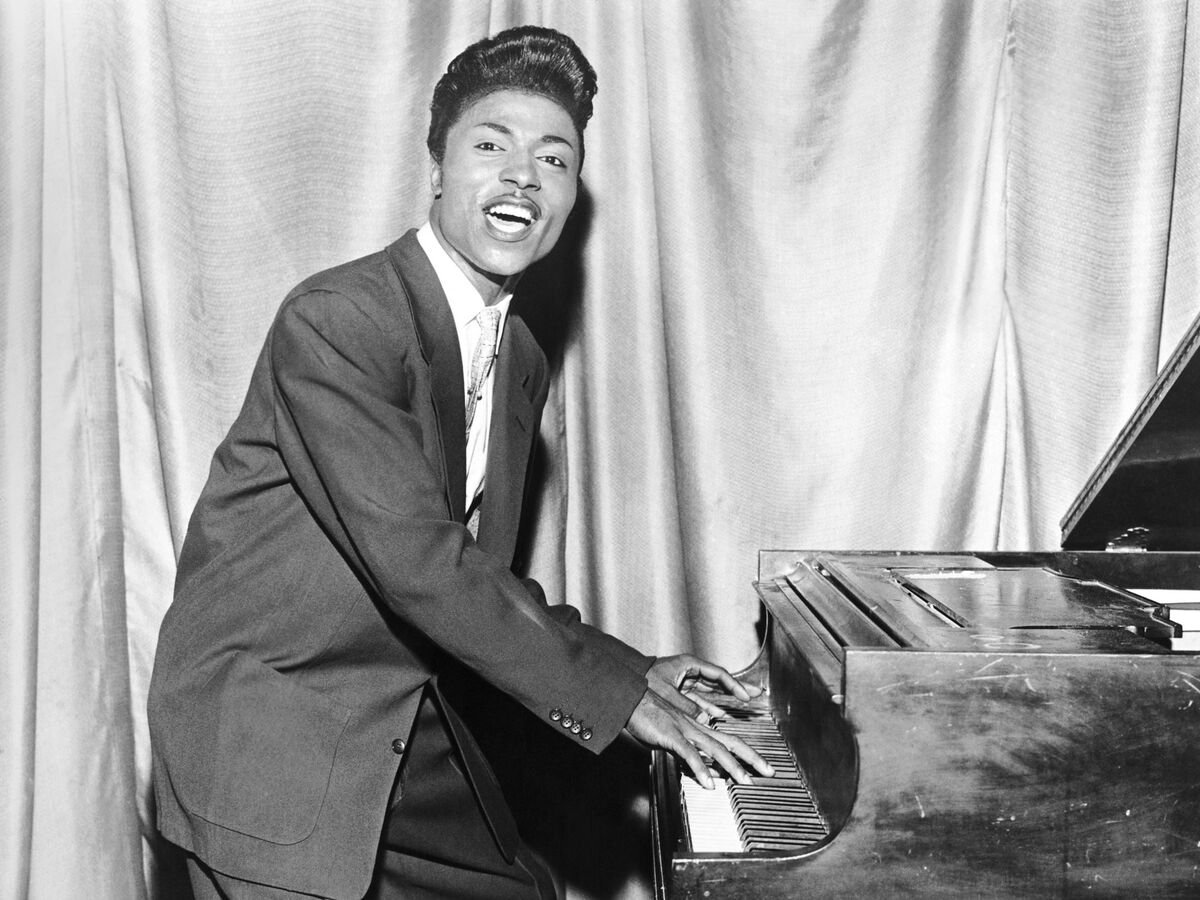One of the most significant figures in the emergence of rock and roll was Richard Wayne Penniman, better known by his stage name, Little Richard (1932–2020). Raised in a religious household in Macon, Georgia, he began singing gospel music in church, where he developed a powerful and expressive vocal style. Little Richard began singing gospel music in church, where he developed a powerful vocal style marked by call-and-response phrasing, intense inflections, and spirited delivery. This gospel foundation became central to his musical identity and deeply shaped his later contributions to popular music.
Little Richard’s breakthrough came in 1955 with the release of “Tutti Frutti,” a song that epitomized the energy and excitement of early rock and roll. Featuring a fast-paced rhythm, percussive boogie-woogie piano, and his signature vocal exclamation—“a wop bop a loo bop a lop bam boom”—the song stood apart from the more polished pop standards of the time. It introduced a raw, urgent sound that resonated across racial lines, helping define a new musical and cultural movement. Although “Tutti Frutti” peaked at number 21 on the pop charts and number two on the R&B charts, it sold around 500,000 copies and was quickly covered by artists such as Elvis Presley and Pat Boone.
Musically, Little Richard’s style was marked by his pounding piano, shouted vocals, and falsetto “woos.” His subsequent hits—including “Long Tall Sally,” “Rip It Up,” “Ready Teddy,” and “Good Golly Miss Molly”—followed a similar energetic blueprint, often based on the 12-bar blues structure but imbued with his unique intensity. His frenetic performance style—characterized by shouting, dancing, gyrating, and profuse sweating—made him a symbol of wild, unrestrained rock and roll. This theatricality, coupled with his flamboyant appearance—sequined suits, heavy makeup, and a styled pompadour—projected an androgynous, glamorous image that challenged contemporary norms of gender and sexuality. His stage presence influenced countless artists, including James Brown, Prince, David Bowie, and Elton John.
Little Richard’s personal identity was complex and often conflicted..Throughout his life, he made a series of statements regarding his sexual identity, at times identifying as gay, bisexual, or omnisexual, and at other times renouncing these identities altogether, citing religious conviction. Influenced by both personal experiences and his Pentecostal upbringing, Little Richard’s stance on sexuality often shifted, especially during periods of renewed religious commitment. In the 1970s and 1980s, he temporarily left the music industry to become a traveling evangelist and spoke out against homosexuality, even as his appearance and stage persona continued to defy conventional gender expectations.
In 1957, at the height of his fame, Little Richard abruptly renounced his music career to pursue religious study and preaching. He briefly married and attended Bible college, but eventually returned to music in the early 1960s. By the late 1960s, Little Richard’s career suffered from his struggles with drug and alcohol dependence. Despite attempts at comebacks in the 1970s, his personal difficulties and tragedies led him to again embrace religion later in life. Reflecting on his journey, Little Richard once stated:
“I felt that my singing was like… Billy Graham giving a message. I gave a message in song to help people... to know the way... I decided to come back and teach goodness in this business. To teach love, because music is the universal language.”
He also expressed concerns about the direction of rock music in later years, describing some modern styles as “demonic” and opposed to spiritual values.
While Little Richard may not have claimed the crown of “king of rock and roll,” he remains one of the genre’s most dynamic and influential pioneers. His blend of gospel-inspired vocals, rhythmic innovation, flamboyant showmanship, and unapologetic individuality laid the groundwork for countless artists and helped define the sound and spirit of rock and roll. His legacy endures not only through his recordings but also through the artists he inspired, from Elvis Presley and Buddy Holly to Jimi Hendrix and Janis Joplin. As he reflected late in life, he credited divine providence for his enduring influence: “I have God to thank that I’m a living legend and not a dead one.” Musically and culturally, Little Richard helped to define the early sound of rock and roll. His gospel-influenced vocal style, rhythmic piano techniques, and charismatic performances captured the restless spirit of postwar youth culture.
